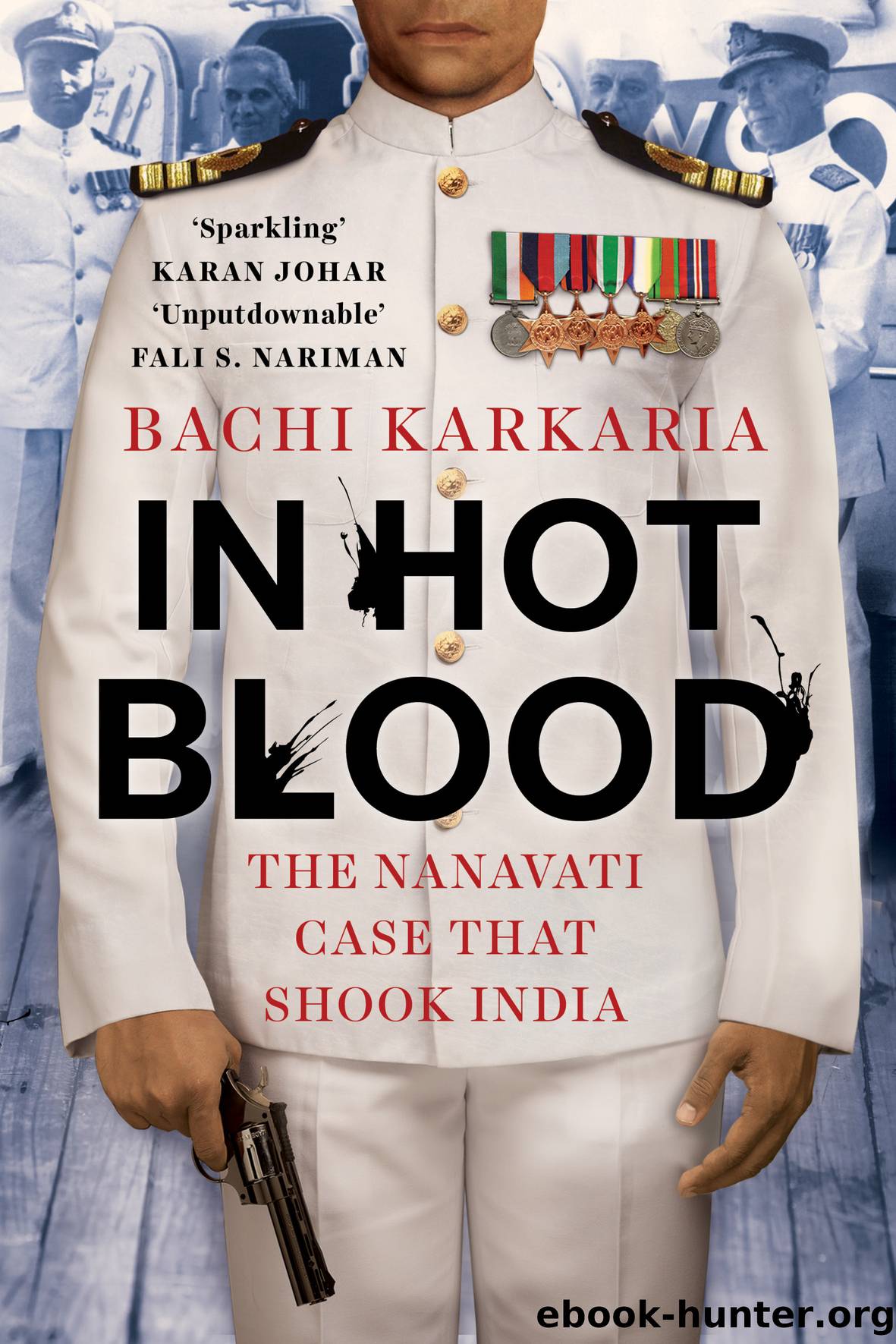In Hot Blood by Bachi Karkaria

Author:Bachi Karkaria
Language: eng
Format: epub
The Supreme Court â Twice Over
The full bench of the Bombay High Court had to be set up on account of a straying wife?! But it gets stranger than that. The Nanavati case has become a full-blown constitutional issue. Tehmtan Andhyarujina explained later, âThough the Chief Justice of Bombay upheld the validity of the Governorâs action, Supreme Court judge P.B. Gajendragadkar told his brother judges that this interference should not be tolerated.â
After the high courtâs favourable judgement on the Governorâs order, Nanavatiâs legal team files an application for special leave in the Supreme Court â a special leave petition can be filed against any judgement of a high court â and also another application asking to be exempted from compliance with Order 21, Rule 5 of the Supreme Court Rules and for the hearing of his application for special leave against the high court judgement convicting him for murder without surrendering to his sentence.
This now requires the attention of the Chief Justice of India himself, presiding over a five-judge bench. They are tasked with interpreting the powers of the Governor (executive) vis-Ã -vis those of the judiciary. How are the Governorâs powers of pardon under Article 161 to be harmonized with the Supreme Courtâs constitutional mandate under Article 142 to ensure the enforcement of legal orders and decrees?
The development has also split the power bloc of the union law ministry. M.C. Setalvad, the Attorney General of India, completely disagreed with the Governorâs order of 11 March 1960, and three weeks later, on 5 April, he presided over a meeting of the Bar Association of India, where a strongly worded resolution condemning such executive interference was passed. The matter having become a politico-legal turf war, the union law minister, Asoke Sen, has to defend the executive from long distance; he wasnât in India at the time.
The Attorney Generalâs name takes us back to the very start of our narrative. Setalvad Lane, where Prem Ahuja lived cavalierly and died violently, honours MCâs father, Sir Chimanlal Setalvad, eminent advocate and liberal leader of the freedom movement. According to the noted lawyer A.G. Noorani, âFree India punished him for not praying at the shrine of the Congress.â
The first time that the Supreme Court deliberates on the Nanavati case is 5 September 1960 with Chief Justice B.P. Sinha, and fellow judges J.L. Kapur, P.B. Gajendragadkar, K. Subba Rao and K.N. Wanchoo. With the exception of J.L. Kapur, all will be elevated to the highest post of the judiciary.
J.L. Kapur is interesting because he will give a dissenting judgement, so powerful that H.M. Seervai will later cite it as one of the reasons which âprompted him to embark without further delayâ on his magisterial commentary on the Indian Constitution. After retirement, Kapur would head the eponymous one-man commission (1964â67) enquiring into the assassination of Mahatma Gandhi. Why sixteen years after the nation-shattering event? This was because of the public outrage over celebrations in Pune after the release of the conspirators in 1964, and the remarks of G.V.
Download
This site does not store any files on its server. We only index and link to content provided by other sites. Please contact the content providers to delete copyright contents if any and email us, we'll remove relevant links or contents immediately.
| Anthropology | Archaeology |
| Philosophy | Politics & Government |
| Social Sciences | Sociology |
| Women's Studies |
The Leavers by Lisa Ko(6459)
Born to Run: by Christopher McDougall(6248)
iGen by Jean M. Twenge(4692)
Sapiens by Yuval Noah Harari(4528)
The Kite Runner by Khaled Hosseini(4408)
Spare by Prince Harry The Duke of Sussex(4188)
Bullshit Jobs by David Graeber(3171)
Livewired by David Eagleman(3113)
Goodbye Paradise(2948)
Never by Ken Follett(2867)
A Dictionary of Sociology by Unknown(2516)
Harry Potter 4 - Harry Potter and The Goblet of Fire by J.K.Rowling(2412)
The Club by A.L. Brooks(2349)
People of the Earth: An Introduction to World Prehistory by Dr. Brian Fagan & Nadia Durrani(2343)
The Social Psychology of Inequality by Unknown(2303)
Machine Learning at Scale with H2O by Gregory Keys | David Whiting(2261)
Harry Potter and the Order of the Phoenix (5) by J.K. Rowling(2224)
0041152001443424520 .pdf by Unknown(2212)
Don't Sleep, There Are Snakes by Daniel L. Everett(2212)
